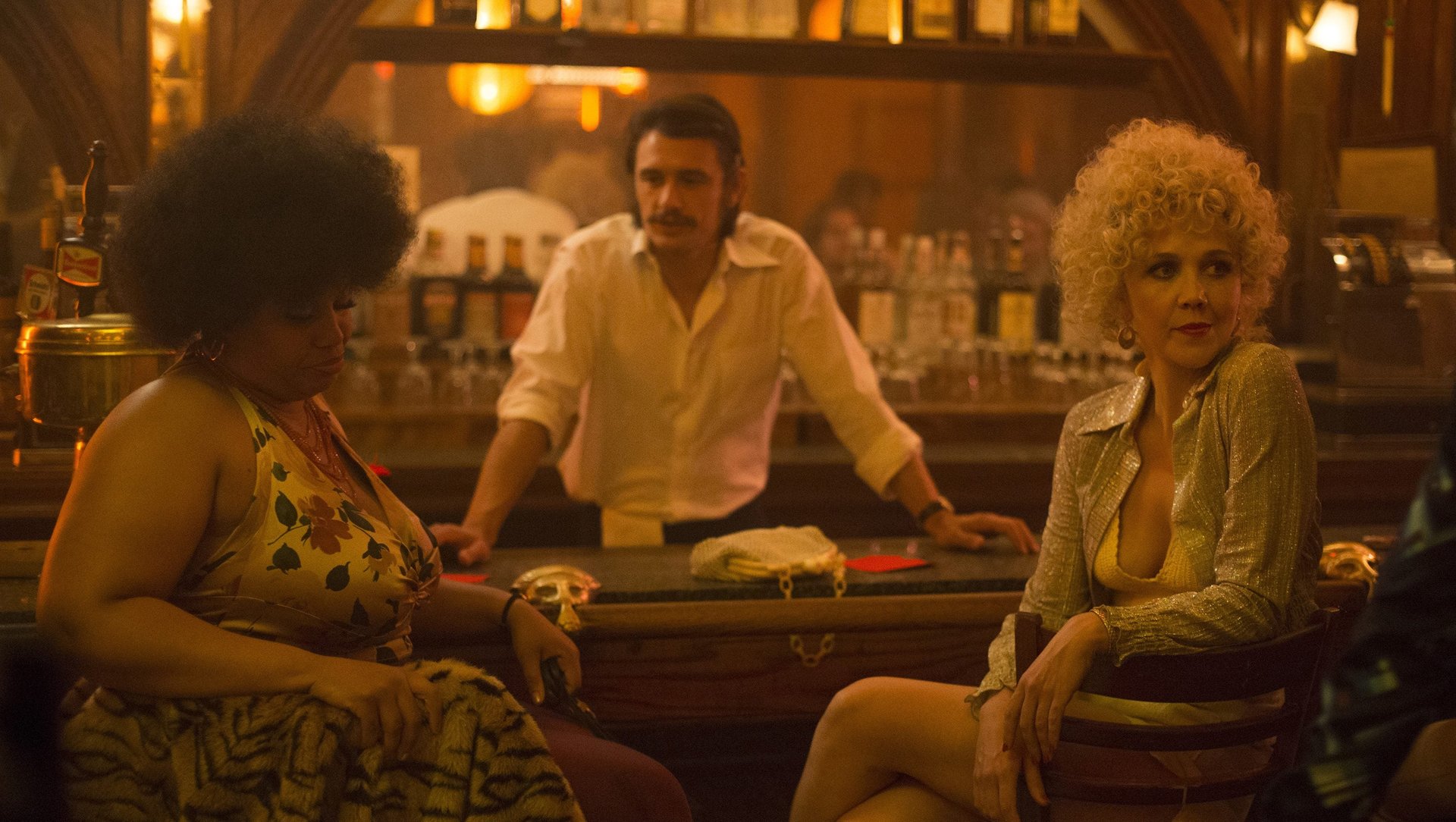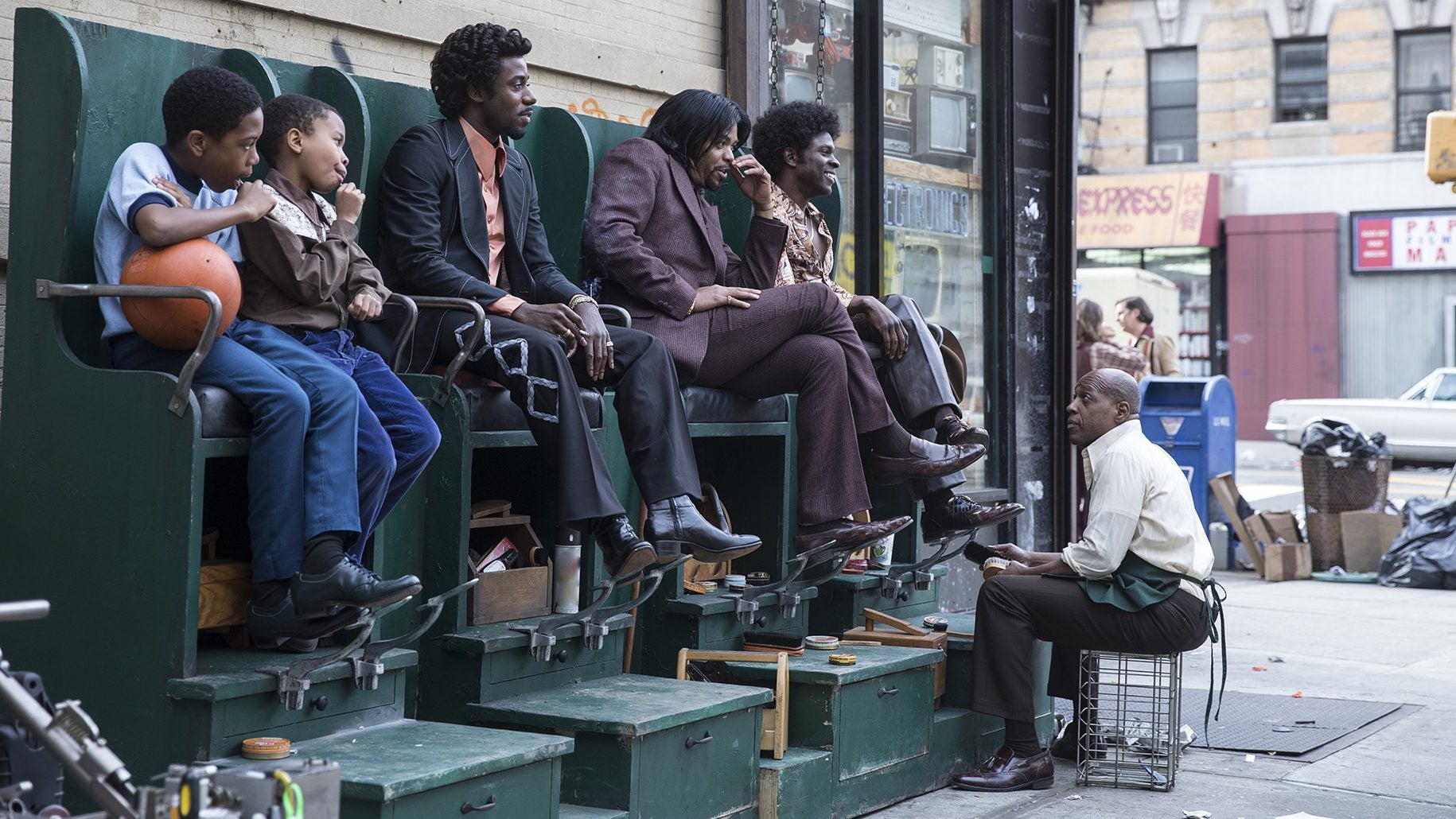David Simon’s gritty new show about porn is also about what makes America great
Taken as a whole, the work of The Wire creator David Simon is a decidedly grim portrait of what makes America not so great: the devastating and unwinnable war on drugs, the cruel indifference of unfettered capitalism. His new show, The Deuce, about the rise of the porn industry in the seedy criminal underworld of 1970s New York, is no different.


Taken as a whole, the work of The Wire creator David Simon is a decidedly grim portrait of what makes America not so great: the devastating and unwinnable war on drugs, the cruel indifference of unfettered capitalism. His new show, The Deuce, about the rise of the porn industry in the seedy criminal underworld of 1970s New York, is no different.
Except when it is. Beneath the urban decay is a compelling argument for the American multicultural experiment. The Deuce is a reminder that interacting with those different from us is both an inevitability and a blessing the country must embrace in order to survive.
In the show’s third episode, a struggling barkeep (James Franco) opens up shop in Times Square, back when it was the city’s central hub for prostitution, drugs, and the mafia. As the characters—of different races, classes, and professions—converge on this rundown bar on 45th Street, their shared humanity is evident as they try to make sense of their lives.
At one point a white college student and a young black prostitute discuss Charles Dickens’ A Tale of Two Cities, and we see that the two aren’t so different, apart from the man-made social and economic forces that made life easy for one, and very difficult for the other. The show judges neither for the choices they’ve made or the things they’ve had to do to get by.
As Simon’s The Wire was set in Baltimore’s urban drug trade, The Deuce delves into the pornography industry. It paints a vivid (and, obviously, nudity-filled) picture of how porn, with its capitalist exploitation of women’s labor and their bodies, became such an integral part of the American economy. The topic is handled with far more nuance than some other shows that have approached similar material. And notably, half the episodes are directed by women.
But just as The Wire wasn’t only about drugs, The Deuce is about so much more than porn, and is replete with complex, multi-dimensional characters. Maggie Gyllenhaal is terrific as an entrepreneurial prostitute who works without a pimp, managing her own clientele and thus keeping every dollar she earns. Her young son, who lives with his grandmother, has no idea what his mom does for a living. He thinks she works in Washington, DC, doing something for the government.
She eventually becomes enthralled by the emerging pornography industry, seeing it as a legal way for her to use her understanding of the male gaze to direct a movie camera. Only then, toward the end of its eight-episode debut season, does the show start being truly about porn.

For all its problems, Simon paints the 1970s New York prostitution world as a completely interracial, weirdly collaborative enterprise, in its own way. One of the emotional through-lines of the season is the romance between a black pimp and a young white prostitute. A regular client of one of the black sex workers is a lonely, elderly white man who pays her just to watch movies with him until he falls asleep. At a midtown Manhattan diner, white suburban families eat flapjacks next to a table of black pimps, each accepting the presence of the other, as a young boy stares, bewildered.
The Deuce works in part as a companion piece to Show Me a Hero, Simon’s HBO miniseries about the attempt to build low income housing in a white neighborhood in Yonkers, New York. The Deuce is less an exploration of the tensions of multiculturalism than it is a love letter to it, showing how deeply it’s ingrained in the country’s DNA.
The closest Simon analogue is Treme, the filmmaker’s show about post-Katrina New Orleans, which he has called his most patriotic project. It dealt with how that city’s culture—specifically, it’s music—helped people survive the historic hurricane and begin to put their lives back together.
“I believe in the city,” Simon said in a conversation with New Jersey senator (and former Newark mayor) Cory Booker, published in the New York Times.. “I have to. I live on a planet where the rise in urbanity requires all of us to master the multicultural beast that is the city. We figure out the city or we fail.”
There’s nothing more American than porn to help demonstrate the importance of “figuring out the city.” As both a critique of capitalism and an understated ode to multiculturalism, The Deuce is perhaps the most uniquely American show on TV.